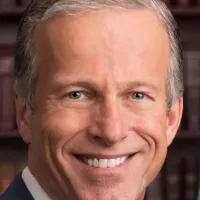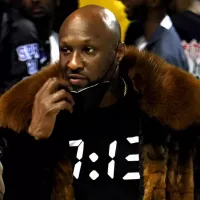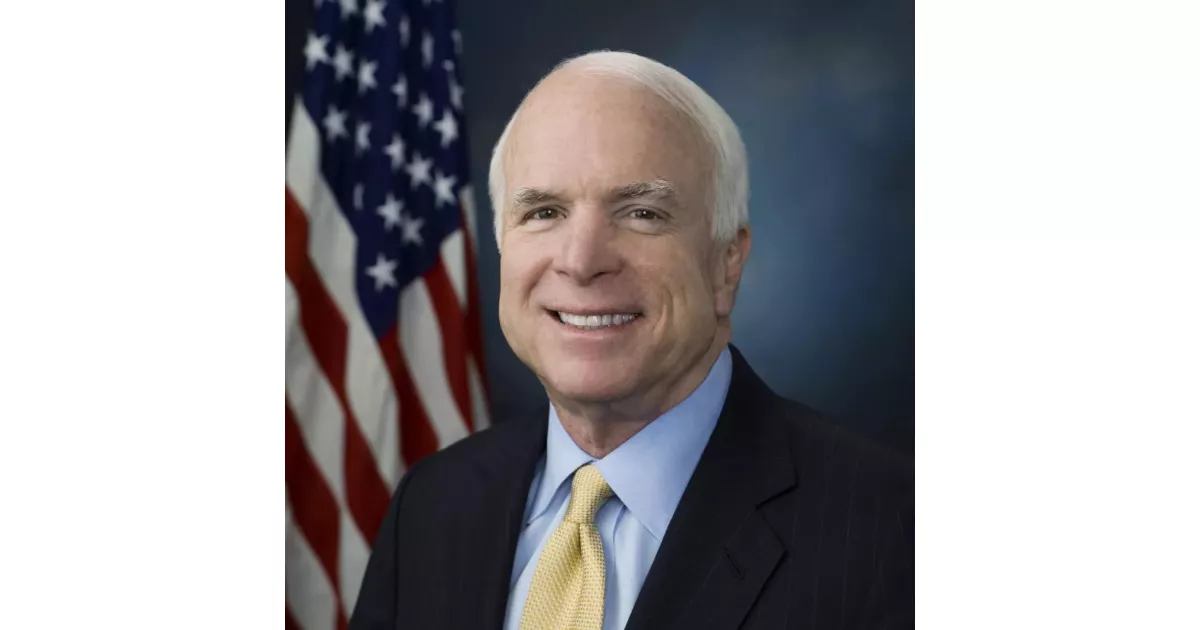John Sidney McCain III was a prominent American politician and military figure. He dedicated his life to serving the United States, both in the Navy and the Senate. As a Navy officer, McCain endured years as a prisoner of war in Vietnam after his plane was shot down. This experience shaped his political career, marked by resilience and a commitment to service. He served as a U.S. Senator for Arizona for over thirty years, becoming a leading voice on national security and veterans' affairs. In 2008, McCain secured the Republican nomination for president but was defeated by Barack Obama. Throughout his life, he was known for his independent spirit and willingness to work across the aisle, earning respect from colleagues on both sides of the political spectrum.
August 29, 1936: Birth of John McCain
John Sidney McCain III was born on August 29, 1936.
1937: Natural-Born Citizenship Question
A legal question arose regarding McCain's eligibility for presidency due to his birth outside the U.S. While a legal review and Senate resolution concluded he was a natural-born citizen, some scholars argued that the 1937 law granting him citizenship, passed after his birth, did not qualify him as natural-born.
1954: High School Graduation
John McCain graduated from Episcopal High School in 1954.
1958: Naval Academy Graduation
John McCain graduated from the U.S. Naval Academy in 1958.
1960: Became a Naval Pilot
John McCain completed flight school and became a naval pilot in 1960.
July 3, 1965: Marriage and Jeopardy! Win
On July 3, 1965, John McCain married Carol Shepp and also appeared as a one-day champion on the game show Jeopardy!.
July 29, 1967: USS Forrestal Fire
John McCain was aboard the USS Forrestal during the fire on July 29, 1967.
October 1967: Shot Down and Captured
During a bombing mission over Hanoi in October 1967, John McCain's plane was shot down, and he was captured by the North Vietnamese.
October 26, 1967: Captured as POW
John McCain was captured as a prisoner of war on October 26, 1967, after his plane was shot down over Hanoi.
December 1967: McCain Placed with Fellow Americans
In December 1967, after spending six weeks in the hospital and losing a significant amount of weight, McCain was transferred to a new camp outside Hanoi and placed in a cell with two other American POWs.
March 1968: Solitary Confinement
In March 1968, McCain was placed in solitary confinement, where he would remain for two years.
August 1968: Torture and Confession
Starting in August 1968, McCain endured severe torture, including beatings every two hours. He eventually made an anti-U.S. propaganda "confession", an act he later considered dishonorable.
1968: Offered Early Release
In mid-1968, after his father became commander of US forces in Vietnam, McCain was offered early release by the North Vietnamese. He refused unless all POWs captured before him were released as well.
December 1969: Wife's Accident
While McCain was a POW, in December 1969, his wife Carol was severely injured in a car accident.
1969: Improved Treatment
From late 1969, the treatment of McCain and other POWs improved, though McCain continued to resist camp authorities.
March 14, 1973: Release from Captivity
On March 14, 1973, McCain was released after five and a half years as a prisoner of war. His injuries sustained during the war left him permanently unable to raise his arms above his head.
1973: Release from Captivity
In 1973, John McCain was released from captivity after spending several years as a prisoner of war in Vietnam. This event marked a significant turning point in his life and is documented in his memoir, "Faith of My Fathers."
1973: Begins Physical Therapy and National War College
In 1973, McCain began treatment for his war injuries, including physical therapy, and attended the National War College.
1974: Flight Status Reinstated
By late 1974, McCain had completed rehabilitation and his flight status was reinstated.
1976: Commanding Officer and Marital Problems
In 1976, McCain became Commanding Officer of a training squadron and improved the unit's performance. However, during this time he engaged in extramarital affairs, and his marriage began to deteriorate.
1976: Public Campaign Financing System Inception
In 1976, the system for public campaign financing was implemented. John McCain criticized Barack Obama for being the first major party candidate to opt out of this system during the 2008 general election campaign.
1977: Entry into Politics
In 1977, McCain began working as the Navy's liaison to the U.S. Senate, marking his entry into the political arena.
April 1979: Meets Cindy Hensley
In April 1979, McCain met Cindy Lou Hensley, who would later become his second wife.
February 1980: Divorce from Carol McCain
McCain's divorce from his first wife, Carol, was finalized in February 1980.
April 1980: Divorce Finalized
In April 1980, McCain's divorce from Carol became official.
May 17, 1980: Marriage to Cindy Hensley
On May 17, 1980, McCain married Cindy Lou Hensley.
April 1, 1981: Retirement from Navy
McCain retired from the Navy on April 1, 1981, with the rank of Captain and received a disability pension.
1981: Retirement from Navy
John McCain retired from the Navy as a captain in 1981.
1982: Runs for Congress
In 1982, McCain ran for an open seat in Arizona's 1st congressional district, facing accusations of being a carpetbagger due to his recent move to the state.
1982: Elected to the House
John McCain was elected to the U.S. House of Representatives in 1982.
1983: Elected to Lead and Opposes King Holiday
In 1983, McCain was elected to lead the incoming Republican representatives and opposed the creation of a federal Martin Luther King Jr. Day, a decision he later reversed.
1983: Aligns with Reagan's Policies
In 1983, McCain's political views aligned with President Reagan's, including support for Reaganomics and a hardline stance against the Soviet Union.
1984: Birth of Meghan McCain
In 1984, John McCain and his wife Cindy welcomed their first child, daughter Meghan McCain. This marked the beginning of their family life.
1984: Re-elected to House
McCain won re-election to the House easily in 1984.
1985: Returns to Vietnam and Visits Chile
In 1985, McCain returned to Vietnam for the first time since his release and also visited Chile, meeting with General Augusto Pinochet.
1986: Richard Kimball Senate Race
In 1986, McCain ran against Richard Kimball for a Senate seat. Kimball later founded Project Vote Smart, on whose board McCain would eventually serve.
January 1987: Start of McCain's Senate Career
In January 1987, John McCain began his Senate career after winning the 1986 election by a significant margin against Democrat Richard Kimball, succeeding the retiring Barry Goldwater.
1987: Involvement in Keating Five Scandal
In 1987, McCain became embroiled in the Keating Five scandal, where he, along with other senators, was accused of improperly intervening with federal regulators on behalf of Charles Keating. This would later lead to a mild rebuke for poor judgment, although he was cleared of acting improperly.
January 1988: Support for Civil Rights Restoration Act
In January 1988, McCain voted in favor of the Civil Rights Restoration Act of 1987. In March, he voted to override President Reagan's veto of this legislation, showcasing his stance on civil rights issues.
1988: Birth of James McCain
In 1988, John McCain and Cindy had their third child, son James McCain. This event highlighted an expansion of the McCain family.
1988: National Visibility at the 1988 Republican National Convention
In 1988, McCain gained national attention by delivering a well-received speech at the Republican National Convention and was considered as a potential vice-presidential pick for George H. W. Bush, eventually becoming chairman of Veterans for Bush.
1988: Indian Gaming Regulatory Act Co-Author
In 1988, McCain, a member of the Armed Services Committee, played a key role in creating the Indian Gaming Regulatory Act, which established rules for Native American gambling enterprises.
1989: Repayment for Trips on Keating's Jets
In 1989, McCain repaid the costs of trips he had taken on Charles Keating's jets, amidst the unfolding Keating Five scandal, as part of addressing the controversy surrounding his involvement.
1990: Supports State King Holiday
In 1990, McCain supported a state holiday in Arizona for Martin Luther King Jr.
1991: Adoption of Bridget McCain
In 1991, Cindy McCain brought a three-month-old girl from a Bangladeshi orphanage to the U.S. for medical treatment. The McCains decided to adopt her, naming her Bridget, adding a significant chapter to their family narrative.
1991: Involvement in Senate Select Committee on POW/MIA Affairs
In 1991, McCain was part of the Senate Select Committee on POW/MIA Affairs, working alongside John Kerry to investigate the Vietnam War POW/MIA issue, concluding with no evidence of live American captives in Southeast Asia.
1992: 1992 Re-election
In 1992, McCain successfully won re-election to the Senate, overcoming the potential impact of the Keating Five affair and defeating his opponents with 56% of the vote.
January 1993: Chairman of the International Republican Institute
In January 1993, McCain became Chairman of the International Republican Institute, an organization dedicated to promoting political democracy worldwide, a position he held until his death.
1993: Opposition to Military Operations in Somalia
In 1993, McCain opposed military operations in Somalia, demonstrating his critical stance on certain foreign interventions and earning the label 'maverick Republican'.
1993: Support for Supreme Court Nominees
In 1993, McCain voted to confirm Ruth Bader Ginsburg to the U.S. Supreme Court, recognizing her qualifications despite differing political views, emphasizing his belief in the presidential prerogative in nominee selection.
1994: Continued Support for Supreme Court Nominees
In 1994, McCain voted to confirm Stephen Breyer to the U.S. Supreme Court, continuing his practice of supporting qualified nominees regardless of political differences.
1994: McCain-Feingold Campaign Finance Reform Effort
Starting in 1994, McCain worked with Senator Russ Feingold on campaign finance reform, focusing on limiting 'soft money' contributions, despite facing opposition from various political and financial interests.
1995: Normalization of Relations with Vietnam
In 1995, McCain played a significant role in the normalization of diplomatic relations between the United States and Vietnam, an effort that stemmed from his work on the Senate Select Committee on POW/MIA Affairs.
1995: Chairman of the Senate Indian Affairs Committee
McCain served as chairman of the Senate Indian Affairs Committee from 1995-1997.
1996: Support for Line Item Veto Act
In 1996, McCain supported the Line Item Veto Act, which aimed to reduce pork barrel spending by giving the president the power to veto specific budget items, although it was later ruled unconstitutional.
1996: Speech at 1996 Republican National Convention
In 1996, McCain was selected to deliver the nominating speech for Bob Dole at the Republican National Convention, highlighting his influence within the party. He was also considered for the vice-presidential slot.
1997: Chairman of Senate Commerce Committee
In 1997, McCain became chairman of the Senate Commerce Committee, facing criticism for accepting funds from businesses under the committee's jurisdiction, but defended his actions by highlighting the minor nature of the contributions.
1997: End of First Term as Chairman of the Senate Indian Affairs Committee
In 1997, McCain's first term as chairman of the Senate Indian Affairs Committee ended.
1997: Senate Commerce Committee Chair
John McCain began his chairmanship of the Senate Commerce Committee in 1997.
1997: McCain named one of the "25 Most Influential People in America"
Time magazine named McCain as one of the "25 Most Influential People in America" in 1997.
November 1998: Third Senate Term Re-election
In November 1998, McCain was re-elected to a third Senate term in a decisive victory over Democratic opponent Ed Ranger, solidifying his political standing.
1998: Offensive Joke About Chelsea Clinton
In 1998, McCain made an offensive joke about Chelsea Clinton, for which he later apologized.
1998: Proposal Against Tobacco Industry
In 1998, McCain proposed legislation to increase cigarette taxes, aiming to fund anti-smoking campaigns and offset health care costs, facing strong opposition from the tobacco industry and most Republicans.
1998: Supreme Court Ruling on Line Item Veto Act
In 1998, the Supreme Court ruled the Line Item Veto Act, which McCain had supported, unconstitutional, ending this attempt at fiscal reform.
February 1999: Vote to Convict Bill Clinton in Impeachment Trial
In February 1999, during the Senate trial following President Clinton's impeachment, McCain voted to convict Clinton on charges of perjury and obstruction of justice, citing the violation of his oath of office.
August 1999: Publication of Memoir: "Faith of My Fathers"
In August 1999, John McCain's memoir, "Faith of My Fathers," co-written with Mark Salter, was published. The book became a bestseller and was later adapted into a TV film. It details McCain's family history, childhood, time at the Naval Academy, and military service, including his experiences as a prisoner of war in Vietnam.
September 27, 1999: McCain Announces Presidential Candidacy
On September 27, 1999, John McCain officially announced his candidacy for president in Nashua, New Hampshire. His campaign focused on reclaiming the government from special interests and returning it to the people.
1999: Reflection on Keating Five Scandal
In 1999, McCain publicly reflected on the Keating Five scandal, acknowledging the wrongful appearance of his and other senators' involvement, emphasizing the importance of avoiding impressions of undue influence.
1999: McCain receives Profile in Courage Award
John McCain and Senator Russ Feingold shared the Profile in Courage Award in 1999 for their work on campaign finance reform.
February 1, 2000: McCain Wins New Hampshire Primary
On February 1, 2000, John McCain won the New Hampshire Republican primary with a significant margin against George W. Bush. This victory highlighted the success of McCain's "retail politics" approach, characterized by town hall meetings and direct engagement with voters.
March 9, 2000: McCain Withdraws from Presidential Race
On March 9, 2000, John McCain withdrew from the Republican presidential race after a series of primary defeats against George W. Bush. Despite a strong showing in New Hampshire, McCain struggled to overcome Bush's substantial lead in delegates.
2000: Contemplating Joe Lieberman as Running Mate
In 2000, John McCain considered selecting Senator Joe Lieberman as his vice-presidential candidate. Although he later expressed regret for not choosing Lieberman, McCain defended his eventual choice, Sarah Palin, despite criticism for her qualifications.
2000: Melanoma Operation
In 2000, John McCain underwent an operation for melanoma, which left a noticeable mark on the left side of his face. By 2008, he had survived without a recurrence for more than seven years, which independent experts considered a favorable prognosis.
2000: Controversial Remarks About Vietnamese People
In 2000, McCain made a controversial and offensive remark using a racial slur against Vietnamese people. Despite claiming it was directed at his captors, the comment drew widespread condemnation.
2000: Presidential Campaign Management
In 2000, Rick Davis managed John McCain's presidential campaign. His involvement continued into McCain's later campaigns, with historical warnings about his Russian links emerging in 2005 and 2006.
2000: Presidential Run
John McCain ran for the Republican presidential nomination in 2000.
2000: McCain receives honorary degree from Colgate University
John McCain received an honorary LL.D from Colgate University in 2000.
2000: Experience from the 2000 Presidential Campaign
McCain's experience from the 2000 presidential campaign was considered a strength in his 2008 run.
2000: The 2000 New Hampshire Primary Triumph
McCain's previous success in the 2000 New Hampshire primary was seen as a positive factor in his 2007/2008 campaign.
2000: Target Greenhouse Gas Emission Levels
The Climate Stewardship Act, first introduced in 2003 and later reintroduced, aimed to reduce greenhouse gas emissions to 2000 levels. The proposed cap-and-trade system was a key component of this environmental legislation.
May 2001: McCain Votes Against Bush Tax Cuts
In May 2001, John McCain voted against the Bush tax cuts, highlighting his independent stance and policy differences with the administration. This vote was one of several instances where McCain broke with the Republican Party line.
September 11, 2001: September 11 Attacks and McCain's Response
Following the September 11, 2001 terrorist attacks, John McCain supported President Bush and the war in Afghanistan. He co-authored legislation to create the 9/11 Commission and co-sponsored the Aviation and Transportation Security Act, demonstrating his commitment to national security.
2001: End of Commerce Committee Chairmanship
John McCain's first term as Chairman of the Senate Commerce Committee ended in 2001.
March 2002: McCain-Feingold Act Signed into Law
In March 2002, the McCain-Feingold Act, officially known as the Bipartisan Campaign Reform Act of 2002, was signed into law. This landmark legislation aimed to regulate campaign finance and is considered one of McCain's most significant legislative achievements.
May 20, 2002: McCain receives honorary degree from Wake Forest University
John McCain received an honorary LL.D from Wake Forest University on May 20, 2002.
2002: McCain-Feingold Act
The McCain-Feingold Act, focusing on campaign finance reform, was passed in 2002.
May 2003: McCain Votes Against Second Round of Bush Tax Cuts
In May 2003, John McCain voted against the second round of Bush tax cuts, arguing that they were fiscally irresponsible during wartime. This demonstrated his willingness to prioritize fiscal responsibility even during a time of conflict.
October 2003: McCain Co-Sponsors Climate Stewardship Act
In October 2003, John McCain and Joe Lieberman co-sponsored the Climate Stewardship Act, proposing a cap-and-trade system to address greenhouse gas emissions. Although the bill was defeated, it reflected McCain's concern about climate change.
November 2003: McCain Questions Rumsfeld's Leadership
By November 2003, after visiting Iraq, John McCain began to publicly question Secretary of Defense Donald Rumsfeld's handling of the war, suggesting that more troops were needed. This public dissent foreshadowed his later loss of confidence in Rumsfeld.
2003: Resumed Commerce Committee Chairmanship
John McCain resumed his chairmanship of the Senate Commerce Committee in 2003.
May 2004: McCain receives honorary degree from the University of Southern California
McCain received an honorary DHL from the University of Southern California in May 2004.
August 2004: McCain Supports Bush's Re-election
In August 2004, during the presidential election campaign, John McCain actively campaigned for President Bush's re-election, emphasizing Bush's leadership in the War on Terror. Despite their past rivalry, McCain's support played a role in Bush's campaign.
2004: McCain Re-elected to Senate
In 2004, John McCain was re-elected to the Senate with a substantial margin, defeating Democratic challenger Stuart Starky. This victory solidified his position as a prominent figure in American politics.
May 2005: McCain Leads "Gang of 14" Compromise
In May 2005, John McCain led a bipartisan group of senators known as the "Gang of 14" to forge a compromise on judicial nominations. The agreement preserved the Senate's ability to filibuster nominees under extraordinary circumstances, diffusing tensions over judicial appointments.
June 17, 2005: McCain receives honorary degree from Northwestern University
McCain received an honorary LL.D from Northwestern University on June 17, 2005.
October 2005: McCain Detainee Amendment
In October 2005, McCain introduced the McCain Detainee Amendment, prohibiting inhumane treatment of prisoners, including those at Guantánamo Bay.
December 2005: Bush Accepts McCain Detainee Amendment
President Bush accepted McCain's Detainee Amendment terms in December 2005, ensuring adherence to international torture conventions.
2005: Indian Gaming Regulatory Act Amendments
By 2005, McCain was pushing for amendments to the Indian Gaming Regulatory Act to limit off-reservation casinos and tribal movement across state lines to build casinos.
2005: National Journal Senator Ratings (2005-2006)
From 2005-2006, the National Journal rated McCain's votes across three policy areas. His average leaned conservative in all three.
2005: Health Status Declaration
In 2005, John McCain declared that his health was 'excellent,' despite having been treated for melanoma. This declaration was part of responding to concerns about his suitability for a presidential run, considering his age and health history.
2005: McCain receives Eisenhower Leadership Prize
In 2005, McCain received the Eisenhower Leadership Prize from The Eisenhower Institute, recognizing his lifetime accomplishments.
2005: Concerns Over Campaign Manager's Links
In 2005, U.S. intelligence warned John McCain's Senate staff about campaign manager Rick Davis's Russian links. These warnings were part of the scrutiny that followed McCain's presidential campaign activities.
2005: End of Second Commerce Committee Chairmanship
John McCain's second chairmanship of the Senate Commerce Committee ended in 2005.
May 2006: Bush Tax Cut Extension and Immigration Reform
In May 2006, McCain supported the Bush tax cut extension, diverging from his previous votes. He also championed comprehensive immigration reform alongside Senator Ted Kennedy, including legalization, guest worker programs, and border enforcement. The Comprehensive Immigration Reform Act passed the Senate but failed in the House.
2006: Fundraising for Republican Candidates
During the 2006 election cycle, McCain actively participated in fundraising activities, raising over $10.5 million for Republican candidates.
2006: National Journal Senator Ratings (2005-2006)
From 2005-2006, the National Journal rated McCain's votes across three policy areas. His average leaned conservative in all three.
2006: McCain receives Bruce F. Vento Public Service Award and Henry M. Jackson Distinguished Service Award
In 2006, John McCain received both the Bruce F. Vento Public Service Award from the National Park Trust and the Henry M. Jackson Distinguished Service Award from the Jewish Institute for National Security Affairs.
2006: McCain receives honorary degrees from Liberty University and The New School
In 2006, McCain received honorary degrees from Liberty University and The New School.
2006: Continuation of Intelligence Warnings
In 2006, U.S. intelligence continued to caution John McCain's Senate staff about his campaign manager Rick Davis's connections to Russia, though further warnings were not issued later.
2006: Continued Efforts on Indian Gaming Regulation
McCain continued his efforts to amend the Indian Gaming Regulatory Act in 2006, aiming to restrict the expansion of off-reservation casinos.
2006: Named One of America's 10 Best Senators
McCain was recognized as one of America's 10 Best Senators by Time magazine in 2006 for his stance against inhumane treatment of prisoners, among other contributions.
January 2007: Reintroduction of Climate Stewardship Act
In January 2007, a modified version of the Climate Stewardship Act, co-sponsored by John McCain, Joe Lieberman, and Barack Obama, was reintroduced in the Senate. This demonstrated McCain's continued commitment to addressing climate change through legislative action.
April 25, 2007: Formal Presidential Candidacy Announcement
On April 25, 2007, McCain formally announced his intention to run for President of the United States in Portsmouth, New Hampshire. He emphasized his focus on taking on difficult but necessary tasks.
June 2007: Religious Identification
As recently as June 2007, John McCain referred to himself as an Episcopalian.
June 2007: Comprehensive Immigration Reform Push
In June 2007, President Bush, McCain, and others strongly advocated for the Comprehensive Immigration Reform Act of 2007. However, it faced intense opposition, particularly from talk radio listeners and others who viewed it as an "amnesty" program. The bill failed twice in the Senate.
December 2007: Resurgence in the Republican Race
By December 2007, McCain's campaign was experiencing a resurgence, particularly in New Hampshire, after a period of decline. This was bolstered by endorsements from several newspapers and Senator Lieberman.
2007: Early Stages of the 2007 Presidential Campaign
Despite being considered an early frontrunner by pundits in 2007, McCain trailed Rudy Giuliani in national Republican polls.
2007: Financial Crisis Context
In 2007, the financial crisis began, culminating in the subprime mortgage crisis. This crisis was a significant factor in the U.S. financial system bailout discussions in which John McCain was involved during his 2008 presidential campaign.
2007: Fundraising Challenges and Staff Departures
McCain faced fundraising problems and staff departures in 2007, partly due to his support for the Comprehensive Immigration Reform Act, which was unpopular among some Republicans. Despite these setbacks, he affirmed his commitment to the race.
2007: Strong Support for the Iraq Troop Surge
McCain strongly supported the 2007 Iraq troop surge, a strategy that became known as "McCain's plan". Despite the surge's unpopularity, he maintained his support, famously stating, "I would much rather lose a campaign than a war."
2007: Second Term as Chairman of the Senate Indian Affairs Committee
McCain's second term as Chairman of the Senate Indian Affairs Committee took place from 2005-2007. During this period, the committee helped expose the Jack Abramoff Indian lobbying scandal.
2007: McCain receives Policymaker of the Year Award
The World Leadership Forum awarded McCain the Policymaker of the Year Award in 2007.
January 3, 2008: Iowa Caucuses and New Hampshire Resurgence
McCain chose not to focus on the Iowa caucuses on January 3, 2008, which were won by Mike Huckabee. However, his campaign showed renewed strength in New Hampshire, aided by key endorsements.
February 2008: Vote Against Waterboarding Ban Bill
McCain voted against a bill containing a ban on waterboarding in February 2008, citing objections to other provisions within the bill, not specifically the waterboarding ban itself.
March 2008: Eighth Trip to Iraq and Support for the Surge
McCain made his eighth trip to Iraq in March 2008 and credited the surge strategy for reducing violence.
May 2008: McCain's Health Records Released
In May 2008, John McCain's presidential campaign allowed the press to review his medical records. The records indicated that he appeared cancer-free, had a strong heart, and was generally in good health. This review aimed to address concerns about his past health issues, including melanoma treatment, as he ran for President.
May 2008: McCain Campaign Reforms
In May 2008, the McCain campaign introduced new rules to avoid conflicts of interest after facing criticism about lobbyists on staff. This led to the departure of five top aides. Cindy McCain also made part of her tax returns public, as McCain focused on the general election campaign against Barack Obama and Hillary Clinton.
August 29, 2008: Sarah Palin Announced as Running Mate
On August 29, 2008, John McCain announced Alaska Governor Sarah Palin as his running mate for the presidential election. This decision was a significant move as Palin became the first female Republican vice-presidential candidate.
September 3, 2008: Republican National Convention Nomination
On September 3, 2008, John McCain and Sarah Palin were officially nominated as the Republican Party's presidential and vice-presidential candidates at the Republican National Convention in Saint Paul, Minnesota. The announcement initially boosted McCain's polling numbers.
2008: Shift in Political Image
After the 2008 presidential campaign, McCain's political image shifted, including distancing himself from the "maverick" label.
2008: CPAC Speech on Beliefs
During his 2008 CPAC speech, McCain outlined his political beliefs including small government, fiscal discipline, low taxes, strong defense, and upholding social values.
2008: Shift in Political Views After Election Loss
Following his 2008 presidential election loss, McCain adopted more traditionally conservative viewpoints.
2008: Meghan McCain enters political discourse
Following the 2008 elections, Meghan McCain became involved in the discussion surrounding the Republican Party's future through blogging and Twitter.
2008: McCain's appearances on SNL
In 2008 John McCain made appearances in two episodes of Saturday Night Live.
2008: Presidential Nomination
In 2008, John McCain became the Republican Party's nominee for the U.S. presidential election.
2008: McCain's Campaign Strategy
In 2008, John McCain positioned himself as the experienced candidate capable of leading the nation, contrasting with Barack Obama. Despite challenges Republicans faced, McCain accepted public financing for his general election campaign, critiquing Obama for opting out of such financing.
2008: Admits Error on King Holiday
In 2008, McCain admitted he was wrong to oppose the Martin Luther King Jr. holiday.
2008: Strengths as a Presidential Candidate
In 2008, McCain's recognized strengths as a presidential candidate included his national name recognition, his sponsorship of major reforms, his ability to work across party lines, his military service and POW experience, his experience from the 2000 campaign, and his fundraising potential.
2008: Project Vote Smart Board Membership
McCain served as a board member for Project Vote Smart, a non-partisan political information provider, until 2008.
2008: Romney as a 2008 Rival
Mitt Romney was one of John McCain's rivals during the 2008 Republican Party presidential primaries.
2008: Campaign Suspension for Bailout Effort
On September 24, 2008, John McCain announced a temporary suspension of his presidential campaign to address the U.S. financial system bailout amid the financial crisis. Despite his call for delaying the debate, it proceeded on September 26, and McCain voted for a revised $700 billion rescue plan on October 1.
2008: National Journal Senator Ratings Publication
The 2008 Almanac of American Politics included the National Journal's ratings of Senator McCain's votes from the 2005-2006 session.
August 2009: Opposition to Economic Stimulus and Sotomayor Nomination
In August 2009, John McCain opposed the Obama economic stimulus package, criticizing its long-term fiscal implications. He also voted against the nomination of Sonia Sotomayor to the Supreme Court, citing concerns over judicial restraint.
2009: John Sidney IV (Jack) graduates from the U.S. Naval Academy
In 2009, John McCain's son, John Sidney IV ("Jack"), graduated from the U.S. Naval Academy, becoming the fourth generation in the family to do so. He went on to become a helicopter pilot.
2009: Oldest Presidential Candidate
In 2009, if inaugurated, John McCain would have been the oldest person to become U.S. President at 72 years and 144 days old. Concerns about his age were addressed by McCain in 2005 when he stated his health was 'excellent.'
March 2010: Opposition to Healthcare Reform
In March 2010, McCain strongly opposed the Affordable Care Act, criticizing both its content and the process by which Congress passed the legislation.
April 2010: Support for Arizona SB 1070
In April 2010, McCain defended Arizona's controversial immigration law, SB 1070, citing the federal government's failure to secure the border.
2010: McCain receives Order of National Hero
Georgian President Mikheil Saakashvili awarded McCain the Order of National Hero in 2010, the first time it was given to a non-Georgian.
2010: Opposition to Obama Administration Policies
In 2010, John McCain became a leading critic of several Obama administration policies, including missile defense, climate change legislation, and healthcare reform. He played a significant role in the filibuster against repealing 'Don't ask, don't tell,' reflecting a shift towards more conservative positions.
2010: Senate Re-election Plans
In 2010, John McCain expressed his intention to run for re-election to his Senate seat after his presidential defeat. During this period, McCain and President Obama maintained a consultative relationship, with Obama referencing McCain's themes in his inauguration speech.
2010: Primary Challenge and Shift in Stance
In 2010, John McCain faced a primary challenge from J.D. Hayworth, prompting him to distance himself from the "maverick" label and adjust his positions on issues like bank bailouts and Guantanamo Bay.
2010: Votes on Key Legislation and "Don't Ask, Don't Tell"
In the 2010 lame-duck session, McCain voted for the Tax Relief Act but against the DREAM Act and the New START Treaty. He continued to fight the repeal of "Don't Ask, Don't Tell".
2010: Rated as "Most Conservative" Senator
McCain was rated as one of the "most conservative" Senators in 2010 by the National Journal.
2010: Citizens United v. Federal Election Commission
The Supreme Court's 2010 Citizens United v. Federal Election Commission decision was criticized by McCain.
2011: Arab Spring and Military Intervention in Libya
During the Arab Spring in 2011, McCain urged for democratic reforms and supported military intervention in Libya, visiting Benghazi and calling the rebel forces "his heroes".
2011: Budget Control Act of 2011
McCain opposed the defense spending sequestrations implemented by the Budget Control Act of 2011.
2012: National Defense Authorization Act and Detention of Terrorism Suspects
In 2012, McCain and Senator Levin worked on the National Defense Authorization Act, addressing the detention of terrorism suspects, eventually clarifying that it would not apply to U.S. citizens.
2012: Criticism of Benghazi Attack Handling and Blocking Rice Nomination
In 2012, McCain heavily criticized the Obama administration's handling of the Benghazi attack and successfully blocked Susan Rice's nomination for Secretary of State.
2012: National Journal Senator Rating
In 2012, the National Journal rated Senator McCain as 73% conservative and 27% liberal.
2012: Endorsement of Romney and Criticism of Citizens United
In the 2012 Republican primaries, McCain endorsed Mitt Romney and criticized the Citizens United Supreme Court decision for its impact on campaign finance.
March 2013: Criticism of Non-Interventionists
In March 2013, McCain criticized non-interventionist senators, labeling them "wacko birds".
May 2013: Visit to Syrian Rebels and Advocacy for Intervention
In May 2013, McCain visited Syrian rebels and advocated for U.S. military intervention in the Syrian civil war, including arming the Free Syrian Army and establishing a no-fly zone.
June 27, 2013: McCain receives honorary degree from Royal Military College of Canada
John McCain received an honorary D.MSc from the Royal Military College of Canada on June 27, 2013.
July 2013: Immigration Reform and Senate Deal on Filibusters
In July 2013, McCain participated in bipartisan immigration reform efforts and an agreement to limit filibusters against executive nominees.
September 2013: Support for Military Response in Syria
Following the Ghouta chemical weapons attack in September 2013, McCain supported a military response against the Assad regime.
October 2013: McCain Votes Against Government Shutdown
In October 2013, McCain voted in favor of the Continuing Appropriations Act, 2014, which resolved the government shutdown and debt-ceiling crisis. He publicly criticized the Republican strategy that led to the crisis.
December 2013: McCain Supports Euromaidan Protests
McCain showed his support for the Euromaidan protests against Ukrainian President Viktor Yanukovych by appearing in Independence Square in Kyiv in December 2013.
2013: Conflicting Public Perceptions
By 2013, McCain's public image became more complex, with conflicting views of him as a "maverick," "traitor," and "elder statesman" emerging.
2013: Censure by Arizona Republican Party
In 2013, McCain was censured by the Arizona Republican Party for his voting record, deemed too liberal. He frequently sided with Obama on significant votes.
2013: National Journal Senator Rating
In 2013, the National Journal rated Senator McCain as 60% conservative and 40% liberal.
June 2014: McCain Criticizes Obama's Foreign Policy
In June 2014, following ISIS gains in Iraq, McCain strongly criticized President Obama's foreign policy and called for the resignation of his national security team.
December 2014: McCain Supports Release of CIA Torture Report
In December 2014, McCain supported the release of the Senate Intelligence Committee report on CIA torture, stating that the American people deserved to know the truth.
January 2015: McCain Becomes Chairman of Armed Services Committee
In January 2015, McCain became Chairman of the Senate Armed Services Committee.
April 2015: McCain Announces Re-election Bid
McCain announced in April 2015 that he would run for a sixth term in the Senate in the 2016 election.
2015: Armed Services Committee Chair
John McCain became Chairman of the Senate Armed Services Committee in 2015.
2015: McCain receives Order of St. Vladimir
The Kyiv Patriarchate awarded John McCain its version of the Order of St. Vladimir in 2015.
August 2016: McCain receives Order of Liberty
In August 2016, Ukrainian President Petro Poroshenko awarded John McCain the Order of Liberty, the highest award for foreigners.
November 2016: McCain Obtains Steele Dossier
McCain obtained a copy of the Steele dossier concerning Trump's alleged links to Russia in November 2016.
December 2016: McCain Gives Steele Dossier to FBI
In December 2016, McCain passed the Steele dossier to FBI Director James Comey.
2016: McCain Initially Supports Trump's Candidacy
During the 2016 Republican primaries, McCain stated that he would support the Republican nominee, even if it was Donald Trump, despite his personal disagreements with him.
2016: McCain Expresses Concerns about Trump
Following Mitt Romney's anti-Trump speech in 2016, McCain echoed the concerns about Trump's national security statements, while still ultimately supporting him as the Republican nominee.
2016: Opposition to Trump
John McCain refused to support Donald Trump's presidential candidacy in 2016.
January 5, 2017: McCain Chairs Senate Hearing on Russian Interference
On January 5, 2017, McCain chaired a Senate Armed Services Committee hearing where intelligence officials presented evidence of Russian interference in the 2016 presidential election.
June 2017: McCain Visits USS John S. McCain
McCain visited the USS John S. McCain, a missile destroyer named after his father and grandfather, when it docked in Vietnam in June 2017.
June 2017: McCain Supports Trump's Arms Deal with Saudi Arabia
McCain voted in favor of President Trump's arms deal with Saudi Arabia in June 2017.
July 14, 2017: Craniotomy and Glioblastoma Diagnosis
On July 14, 2017, John McCain underwent a minimally invasive craniotomy to remove a blood clot. Following the procedure, he was diagnosed with glioblastoma, an aggressive form of brain cancer.
July 2017: McCain Reiterates Call to Replace Obamacare
In July 2017, McCain reiterated his call to replace the Affordable Care Act (Obamacare).
September 2017: McCain Condemns Rohingya Crisis
In September 2017, in response to the Rohingya crisis, McCain announced steps to end planned military cooperation with Myanmar.
October 2017: McCain Praises Trump's Stance on Iran Nuclear Deal
In October 2017, McCain praised Trump's decision to decertify Iran's compliance with the nuclear deal.
November 29, 2017: Phoenix City Council votes to name airport terminal after McCain
The Phoenix City Council voted unanimously on November 29, 2017, to name Terminal 3 at Phoenix Sky Harbor International Airport after Senator McCain.
December 2017: McCain Stops Voting Due to Cancer Treatment
After December 2017, McCain did not vote in the Senate due to his ongoing cancer treatment.
2017: McCain receives Order of Freedom and Liberty Medal
In 2017, McCain received the "Urdhër i Lirisë" (Order of Freedom) medal from Kosovo's President Hashim Thaçi and the Liberty Medal from the National Constitution Center.
2017: Meghan McCain joins "The View"
In 2017, Meghan McCain joined the cast of the ABC talk show "The View" as a co-host, where Senator McCain also made guest appearances.
2017: Return to Senate and Healthcare Vote
In 2017, shortly after brain surgery, McCain returned to the Senate and cast a decisive vote against the "skinny repeal" of the Affordable Care Act. He also supported the Tax Cuts and Jobs Act of 2017.
2017: Vote Against ACA Repeal
John McCain cast the deciding vote against the American Health Care Act in 2017, which would have partially repealed the Affordable Care Act.
April 15, 2018: Surgery for Infection
On April 15, 2018, McCain underwent surgery for an infection related to diverticulitis.
July 11, 2018: USS John S. McCain rededicated
On July 11, 2018, the USS John S. McCain, initially named after the Senator's father and grandfather, was rededicated to include the Senator in its naming.
August 2018: McCain's death
Senator John McCain passed away in August 2018.
August 24, 2018: Decision to End Cancer Treatment and Death
On August 24, 2018, McCain's family announced that he would discontinue cancer treatment. He died the following day, August 25, 2018.
August 25, 2018: Death of John McCain
John McCain passed away on August 25, 2018.
2018: "The Restless Wave" Memoir
In his 2018 memoir, "The Restless Wave," McCain described his political stances, including support for lower taxes, less government, free markets, free trade, and defense readiness.
2018: McCain receives Grand Cordon of the Order of the Rising Sun
In the spring of 2018, John McCain received the Grand Cordon of the Order of the Rising Sun from the Japanese Emperor for his work in strengthening U.S.-Japan relations.
2018: Death from Glioblastoma
John McCain died from glioblastoma in 2018.
January 7, 2019: Airport terminal named after McCain opens
Terminal 3 at Phoenix Sky Harbor International Airport, named in honor of Senator McCain, opened on January 7, 2019.
April 4, 2019: Kyiv City Council renames street after McCain
On April 4, 2019, the Kyiv City Council renamed a street in honor of John McCain.
2022: McCain posthumously awarded Presidential Medal of Freedom
President Biden posthumously awarded John McCain the Presidential Medal of Freedom in 2022.
Mentioned in this timeline

Donald John Trump is an American politician media personality and...

Bill Clinton served as the nd U S President from...

Barack Obama the th U S President - was the...

Hillary Diane Rodham Clinton is a prominent American politician lawyer...

Martin Luther King Jr was a pivotal leader in the...

George W Bush the rd U S President - is...
Trending

5 minutes ago Trey Hendrickson not expected to be tagged; David Montgomery traded to Texans.

5 minutes ago Israel and US intensify attacks on Iran and Lebanon amid widening conflict.

1 hour ago NFL teams scout Maxx Crosby; Lions pursue a 'mega-deal' amid trade rumors.

1 hour ago Lamar Odom claims he experienced the afterlife after 2015 overdose in Netflix Untold.

1 hour ago Christina Applegate Details Breakup with Brad Pitt, Dating Sebastian Bach

1 hour ago Maisy Stella and Tatum Grace Hopkins Cast in 'Life is Strange' TV Series.
Popular

Jesse Jackson is an American civil rights activist politician and...

Hillary Diane Rodham Clinton is a prominent American politician lawyer...

Jim Carrey is a Canadian-American actor and comedian celebrated for...

Ken Paxton is an American politician and lawyer serving as...

XXXTentacion born Jahseh Dwayne Ricardo Onfroy was a controversial yet...

Bill Clinton served as the nd U S President from...
